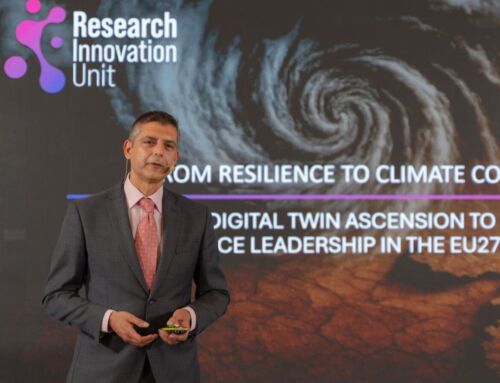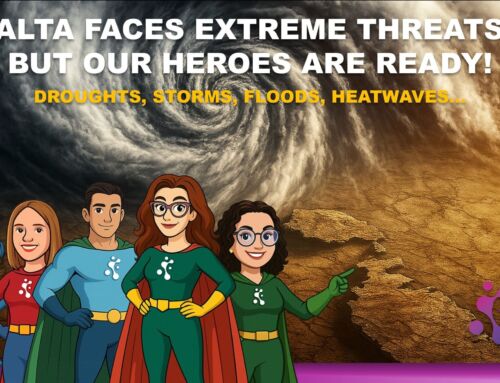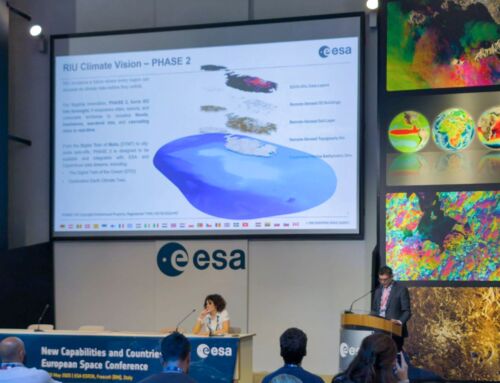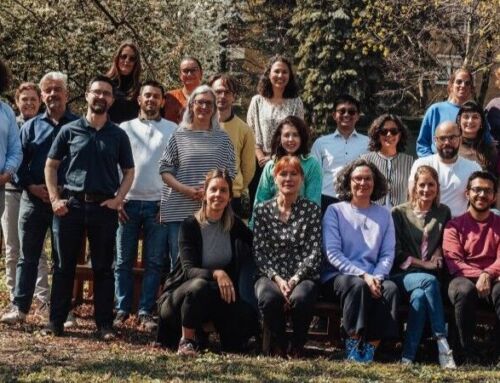Malta is at a critical juncture where rising greenhouse gas (GHG) emissions and worsening air pollution are creating severe health risks and environmental challenges. Recent data shows that Malta is experiencing the fastest growth in emissions across the EU, threatening its public health, economy, and ability to meet climate targets. A hybrid approach—integrating nature-based solutions (NBS) with ethical geoengineering—offers an effective strategy to mitigate these issues. This editorial explores the Research Innovation Unit’s (RIU) role in advancing this strategy, backed by discussions from the European Roundtable on Climate Risk Management and Malta’s National Energy and Climate Plan (NECP), which provide a robust framework for future action.
Rising Greenhouse Gas Emissions and Malta’s Challenges
According to reports from Times of Malta, GHG emissions in Malta increased by 18% in 2021 alone, with Eurostat highlighting that Malta’s emissions are growing faster than any other EU country. This surge is primarily driven by fossil fuel dependence in the energy sector and an increasingly congested transport system. Despite government efforts to push electrification, Malta’s geographical and economic constraints make achieving these goals within the required timeline extremely challenging.
The Health Crisis: Pollution and Public Health
Air pollution in Malta is not just an environmental issue, it is a growing public health crisis. The European Environment Agency (EEA) and the European Public Health Alliance (EPHA) have linked high levels of nitrogen oxides (NOx) and particulate matter (PM2.5) to respiratory diseases, cardiovascular problems, and premature mortality in the country. Malta’s densely populated urban areas are particularly vulnerable due to the high concentration of vehicle emissions and limited green space, exacerbating health issues for residents.
Electrification Alone Won’t Solve Malta’s Problems
The government has promoted the electrification of transport. Electric vehicles (EVs) do reduce street-level pollution, which is important key measure to reduce emissions where pollutants get trapped, especially in urban areas with dense populations and street canyons. However, this transition comes with deeper systemic issues. According to media reports, subsidies for EVs may not extend beyond 2024, raising uncertainty about Malta’s ability to transition its fleet fully, as ICE vehicles go at a drastically lower selling point.
More critically, Malta’s power grid lacks the capacity to meet the increased demand from widespread EV adoption. The fragility of the grid became apparent during a series of blackouts in 2023 and 2024, which were exacerbated by population growth and rising energy demands. The shore-to-ship power initiative, aimed at reducing emissions from docked cruise liners in Grand Harbour, has also struggled with uptake and ships continuing to rely on their diesel power. Until now only the environmnet friendly Liquified Natural Gas powered MSC World Europa uses the shore-to-ship during its routine dock in the Grand Harbour every Wednesday.
A Hybrid Approach: Leveraging Nature-Based Solutions (NBS)
NBS such as afforestation, urban greening, and ecosystem restoration offer immediate and long-term benefits in reducing air pollution. These strategies, which sequester carbon and filter pollutants naturally, are already recognized in Malta’s NECP. However, these efforts need to be scaled up dramatically to counterbalance rapid urbanization and transportation and the resulting rise in emissions.
The RIU has been pivotal in researching how natural systems can be integrated into urban planning to enhance both air quality and climate resilience. Urban greening can mitigate heat stress and reduce pollution, particularly in densely populated areas, while also improving the overall quality of life for residents. These initiatives also align with public-private collaborations that aim to attract funding and investment into NBS projects, ensuring they are both economically viable and environmentally effective.
Ethical Geoengineering: A Necessary Complement
In addition to NBS, ethical geoengineering plays a crucial role in combating air pollution. Technologies like carbon capture and storage (CCS), air filtration systems, and other innovations provide more immediate solutions to pollution. The NECP stresses the importance of innovation in reducing GHG emissions, but such interventions must be ethically managed to complement ecological preservation. Geoengineering should not be seen as a standalone solution but as a supplement to broader decarbonization strategies.
RIU has emphasized the need for ethical oversight when implementing technologies such as CCS, ensuring that they align with both environmental sustainability and social responsibility. For example, while carbon capture technology can reduce emissions it must be deployed alongside broader measures to reduce reliance on fossil fuels.
Synergy Between NBS and Ethical Geoengineering
By combining NBS and geoengineering technologies, Malta can develop a comprehensive strategy for reducing air pollution. Urban greening projects can be paired with air filtration technologies in high-density areas, providing immediate relief from pollution while supporting long-term climate resilience. This hybrid approach offers Malta a path toward achieving its climate goals without compromising public health or economic growth.
Policy Recommendations
To effectively address the challenges posed by rising emissions and air pollution, the RIU advocates for the following initiatives:
- Expansion of Urban Green Spaces: Increase funding for afforestation and urban greening projects, ensuring they are integrated into city planning to improve air quality and climate resilience.
- Deployment of Air Filtration Technologies: In high-density urban areas, advanced air filtration systems should be deployed to reduce health risks, particularly in schools and hospitals.
- Public-Private Partnerships: Foster collaborations between the government, private sector, and research institutions to fund and implement NBS and geoengineering technologies.
- Education and Awareness Campaigns: Launch a national campaign to raise public awareness about the benefits of NBS and the role of technology in mitigating climate risks, highlighting the urgent need for sustainable practices.
Malta’s rising GHG emissions and worsening air pollution call for urgent action. While the electrification of transport is necessary, it is insufficient on its own. A hybrid approach that combines nature-based solutions with ethical geoengineering offers the best pathway for Malta to meet its climate goals while protecting public health. The RIU, working in alignment with the NECP and findings from the European Roundtable on Climate Risk Management, continues to play a crucial role in shaping these solutions. Through innovation, collaboration, and a focus on sustainability, Malta can lead the way in addressing the twin crises of pollution and climate change.
References
- Times of Malta. “Why are Malta’s Greenhouse Gas Emissions Rising?” Retrieved from Times of Malta
- Times of Malta. “Greenhouse Gas Emissions Rising Fastest in Malta, EU Data Shows.” Retrieved from Times of Malta
- Times of Malta. “Electric Vehicle Subsidies Not Guaranteed for Next Year.” Retrieved from Times of Malta
- European Environment Agency (EEA). “Air Quality in Europe — 2020 Report.” Retrieved from EEA
- European Public Health Alliance (EPHA). “The Impact of Air Pollution on Health in Malta.” Retrieved from EPHA
- Times of Malta. “Power Outage Strikes Cruise Liner Hooked to Shore-to-Ship Power System.” Retrieved from Times of Malta






